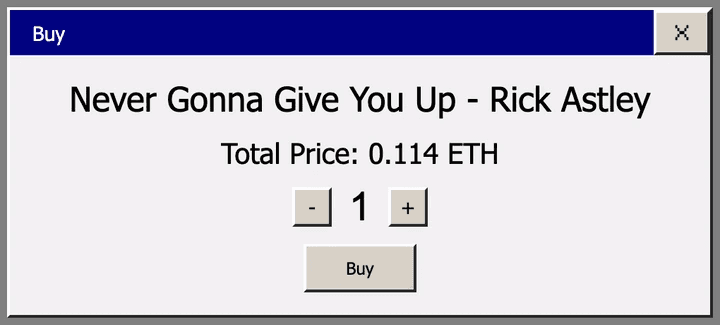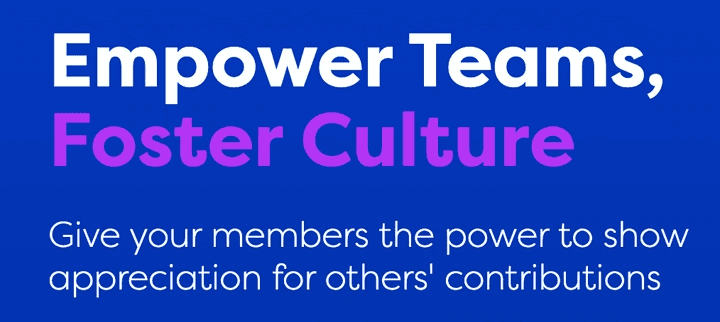Web3 Social: weekly round up #3
Web3 Social: weekly round up #3
We're back with our weekly summary of what's new in web3 social. I'm gathering so much intel every week on what's happening in this little industry of ours and I thought it's probably helpful for others too. So, here we go.

Florian
Published on November 3, 2023
November 3, 2023

Friend Tech introduces Bug Bounty Program
Friend Tech, the viral web3 social app where people can buy shares in one another has introduced a bug bounty program.
Friend Tech has made a name for itself when it went viral after its launch in August of this year. The app allows people to speculate on the popularity of twitter accounts in an innovative way: every account has "keys" that give access to a private chat with that account. Anyone can acquire one or more of these keys. The pricing of these keys follows an exponential curve, referred to as a bonding curve. While the money spent on a key stays locked in the bonding curve smart contract, Friend Tech and its users earn fees for every buy or sell transaction.
With the popularity of Friend Tech, hackers have tried to penetrate the wallets of individual users. Also the bonding curve smart contract is a big target for hackers, as there's a lot of money waiting to be taken.
According to on-chain sleuth ZachXBT, $13.3M has been stolen from wallets as the result of 54 SIM Swaps targeting people in the crypto space. Among these victims are users of Friend Tech, who have generated a wallet on-the-fly through their mobile phone number.

With the bug bounty program, Friend Tech tries to sway hackers to submit bugs rather than exploit them. Good move!
Source: friend.tech Bug Bounty Program
Cipher goes bust in a matter of days after launch
Cipher was a web3 social app that attempted to ride on the wave of success generated by Friend Tech. People call these apps "FT clones" to explain the general mechanics of how these apps work.
A few days before launching a token sale, the Cipher team decided to stop the entire operation because they realized that they're not building a sustainable business.

People now debate whether this was a rug pull or a responsible action. What do you think?
Source: ZachXBT on X
SongTech - The Market for Songs
At this point you're probably seeing a pattern here. SongTech is another "FT clone" that launched this week. Anyone can submit a song (market) for a fee of 0.001 ETH to the platform. People can buy tokens of that song through a bonding curve. Token holders receive 5% of all buys and sells, another 5% is reserved for the artist themselves. The platform itself takes no fees. The bonding curve is designed in a linear as opposed to an exponential fashion, reducing the "ponzinomics" aspect.
Who do you think is leading the charts?
You may consider yourself rickrolled :)

Source: SongTech
Building a cybernetic law platform for DAOs
Enough Friend Tech shenanigans. Delphi Labs is hiring developers to start building a platform for cybernetic organizations, aka 'BORGs'. According to Gabe Shapiro, Delphi's General Counsel, BORGs are real-world business entities intrinsically bound to smart contracts (and, eventually, AI). They create a new design space of cybernetic law bridging onchain and offchain worlds.

Source: - Tweet by Delphi Labs - Primer on BORGs
Hats Protocol launches Modules; Gating
Hats Protocol is building a new on-chain primitive for on-chain organizations: roles! At hats, an organization is a tree of roles with different capabilities attached.

Now they've shipped their biggest release since original launch: modules. These modules allow developers to give roles unbounded capabilities. One of their demo features is token-gated roles, that are claimable when having a specific token on a connected wallet.
If any of that sounds familiar to you, it's maybe because this is exactly how roles on Common Ground work as well. The beauty of hats is that all of this functionality is entirely on-chain. Personally, I'm looking forward to an integration of Hats Protocol into Common Ground!
Source: Announcement on X
Chainchat by Zapper launches to the public
Okay, I was just kidding when I said enough of the Friend Tech shenanigans. Here's the next one: Chainchat. Chain Chat allows people to create paid group chats, where new members have to buy a share to join the chat. Sound familiar?

What's notable here is that Chainchat has been built by Zapper, a pretty powerful chain exploration platform.
Looking at the chainchat platform, there seems to be a lot of demand for it, with thousands of group chats available to join.
Source: Announcement on X
Quidli launches Telegram integration
Quidli allows projects to share web3 assets as rewards in Web2 apps. With their recently released Telegram integration, you can now create, offer and manage token reward flows for your TG groups to work on and claim, all directly in-app!
Quidli integrations are now available for Github, Telegram, Discord and Slack!

Source: Announcement on X
The end
That was it for this week. If you found this interesting, be sure to check back here once a week where I'll be sharing the latest and greatest in web3 social.
Peace out ☮️
Friend Tech introduces Bug Bounty Program
Friend Tech, the viral web3 social app where people can buy shares in one another has introduced a bug bounty program.
Friend Tech has made a name for itself when it went viral after its launch in August of this year. The app allows people to speculate on the popularity of twitter accounts in an innovative way: every account has "keys" that give access to a private chat with that account. Anyone can acquire one or more of these keys. The pricing of these keys follows an exponential curve, referred to as a bonding curve. While the money spent on a key stays locked in the bonding curve smart contract, Friend Tech and its users earn fees for every buy or sell transaction.
With the popularity of Friend Tech, hackers have tried to penetrate the wallets of individual users. Also the bonding curve smart contract is a big target for hackers, as there's a lot of money waiting to be taken.
According to on-chain sleuth ZachXBT, $13.3M has been stolen from wallets as the result of 54 SIM Swaps targeting people in the crypto space. Among these victims are users of Friend Tech, who have generated a wallet on-the-fly through their mobile phone number.

With the bug bounty program, Friend Tech tries to sway hackers to submit bugs rather than exploit them. Good move!
Source: friend.tech Bug Bounty Program
Cipher goes bust in a matter of days after launch
Cipher was a web3 social app that attempted to ride on the wave of success generated by Friend Tech. People call these apps "FT clones" to explain the general mechanics of how these apps work.
A few days before launching a token sale, the Cipher team decided to stop the entire operation because they realized that they're not building a sustainable business.

People now debate whether this was a rug pull or a responsible action. What do you think?
Source: ZachXBT on X
SongTech - The Market for Songs
At this point you're probably seeing a pattern here. SongTech is another "FT clone" that launched this week. Anyone can submit a song (market) for a fee of 0.001 ETH to the platform. People can buy tokens of that song through a bonding curve. Token holders receive 5% of all buys and sells, another 5% is reserved for the artist themselves. The platform itself takes no fees. The bonding curve is designed in a linear as opposed to an exponential fashion, reducing the "ponzinomics" aspect.
Who do you think is leading the charts?
You may consider yourself rickrolled :)

Source: SongTech
Building a cybernetic law platform for DAOs
Enough Friend Tech shenanigans. Delphi Labs is hiring developers to start building a platform for cybernetic organizations, aka 'BORGs'. According to Gabe Shapiro, Delphi's General Counsel, BORGs are real-world business entities intrinsically bound to smart contracts (and, eventually, AI). They create a new design space of cybernetic law bridging onchain and offchain worlds.

Source: - Tweet by Delphi Labs - Primer on BORGs
Hats Protocol launches Modules; Gating
Hats Protocol is building a new on-chain primitive for on-chain organizations: roles! At hats, an organization is a tree of roles with different capabilities attached.

Now they've shipped their biggest release since original launch: modules. These modules allow developers to give roles unbounded capabilities. One of their demo features is token-gated roles, that are claimable when having a specific token on a connected wallet.
If any of that sounds familiar to you, it's maybe because this is exactly how roles on Common Ground work as well. The beauty of hats is that all of this functionality is entirely on-chain. Personally, I'm looking forward to an integration of Hats Protocol into Common Ground!
Source: Announcement on X
Chainchat by Zapper launches to the public
Okay, I was just kidding when I said enough of the Friend Tech shenanigans. Here's the next one: Chainchat. Chain Chat allows people to create paid group chats, where new members have to buy a share to join the chat. Sound familiar?

What's notable here is that Chainchat has been built by Zapper, a pretty powerful chain exploration platform.
Looking at the chainchat platform, there seems to be a lot of demand for it, with thousands of group chats available to join.
Source: Announcement on X
Quidli launches Telegram integration
Quidli allows projects to share web3 assets as rewards in Web2 apps. With their recently released Telegram integration, you can now create, offer and manage token reward flows for your TG groups to work on and claim, all directly in-app!
Quidli integrations are now available for Github, Telegram, Discord and Slack!

Source: Announcement on X
The end
That was it for this week. If you found this interesting, be sure to check back here once a week where I'll be sharing the latest and greatest in web3 social.
Peace out ☮️
Friend Tech introduces Bug Bounty Program
Friend Tech, the viral web3 social app where people can buy shares in one another has introduced a bug bounty program.
Friend Tech has made a name for itself when it went viral after its launch in August of this year. The app allows people to speculate on the popularity of twitter accounts in an innovative way: every account has "keys" that give access to a private chat with that account. Anyone can acquire one or more of these keys. The pricing of these keys follows an exponential curve, referred to as a bonding curve. While the money spent on a key stays locked in the bonding curve smart contract, Friend Tech and its users earn fees for every buy or sell transaction.
With the popularity of Friend Tech, hackers have tried to penetrate the wallets of individual users. Also the bonding curve smart contract is a big target for hackers, as there's a lot of money waiting to be taken.
According to on-chain sleuth ZachXBT, $13.3M has been stolen from wallets as the result of 54 SIM Swaps targeting people in the crypto space. Among these victims are users of Friend Tech, who have generated a wallet on-the-fly through their mobile phone number.

With the bug bounty program, Friend Tech tries to sway hackers to submit bugs rather than exploit them. Good move!
Source: friend.tech Bug Bounty Program
Cipher goes bust in a matter of days after launch
Cipher was a web3 social app that attempted to ride on the wave of success generated by Friend Tech. People call these apps "FT clones" to explain the general mechanics of how these apps work.
A few days before launching a token sale, the Cipher team decided to stop the entire operation because they realized that they're not building a sustainable business.

People now debate whether this was a rug pull or a responsible action. What do you think?
Source: ZachXBT on X
SongTech - The Market for Songs
At this point you're probably seeing a pattern here. SongTech is another "FT clone" that launched this week. Anyone can submit a song (market) for a fee of 0.001 ETH to the platform. People can buy tokens of that song through a bonding curve. Token holders receive 5% of all buys and sells, another 5% is reserved for the artist themselves. The platform itself takes no fees. The bonding curve is designed in a linear as opposed to an exponential fashion, reducing the "ponzinomics" aspect.
Who do you think is leading the charts?
You may consider yourself rickrolled :)

Source: SongTech
Building a cybernetic law platform for DAOs
Enough Friend Tech shenanigans. Delphi Labs is hiring developers to start building a platform for cybernetic organizations, aka 'BORGs'. According to Gabe Shapiro, Delphi's General Counsel, BORGs are real-world business entities intrinsically bound to smart contracts (and, eventually, AI). They create a new design space of cybernetic law bridging onchain and offchain worlds.

Source: - Tweet by Delphi Labs - Primer on BORGs
Hats Protocol launches Modules; Gating
Hats Protocol is building a new on-chain primitive for on-chain organizations: roles! At hats, an organization is a tree of roles with different capabilities attached.

Now they've shipped their biggest release since original launch: modules. These modules allow developers to give roles unbounded capabilities. One of their demo features is token-gated roles, that are claimable when having a specific token on a connected wallet.
If any of that sounds familiar to you, it's maybe because this is exactly how roles on Common Ground work as well. The beauty of hats is that all of this functionality is entirely on-chain. Personally, I'm looking forward to an integration of Hats Protocol into Common Ground!
Source: Announcement on X
Chainchat by Zapper launches to the public
Okay, I was just kidding when I said enough of the Friend Tech shenanigans. Here's the next one: Chainchat. Chain Chat allows people to create paid group chats, where new members have to buy a share to join the chat. Sound familiar?

What's notable here is that Chainchat has been built by Zapper, a pretty powerful chain exploration platform.
Looking at the chainchat platform, there seems to be a lot of demand for it, with thousands of group chats available to join.
Source: Announcement on X
Quidli launches Telegram integration
Quidli allows projects to share web3 assets as rewards in Web2 apps. With their recently released Telegram integration, you can now create, offer and manage token reward flows for your TG groups to work on and claim, all directly in-app!
Quidli integrations are now available for Github, Telegram, Discord and Slack!

Source: Announcement on X
The end
That was it for this week. If you found this interesting, be sure to check back here once a week where I'll be sharing the latest and greatest in web3 social.
Peace out ☮️
Read more articles



Web3 for All
Consensys, the company behind Metamask, Infura, Linea and other significant projects in web3, features Common Ground prominently on their blog.

·
Oct 2, 2024



The App Revolution: what's hot in web3 right now?
After years of intense focus on infrastructure and protocols, the spotlight is finally shifting to applications. In this blog post, we'll dive deep into Web3 applications, exploring how they're reshaping various aspects of our digital lives.

Florian Glatz ·
Sep 26, 2024



Ecosystems as Groups of Groups: a new primitive in large-scale coordination?
Web3 more than any other sector of the economy explicitely designs, develops and evolves the idea of ecosystems. For the first time, a group of researchers in web3 has analyzed the ecosystem phenomenon as an emerging group of groups primitive.

·
Sep 5, 2024
Menu
Menu
